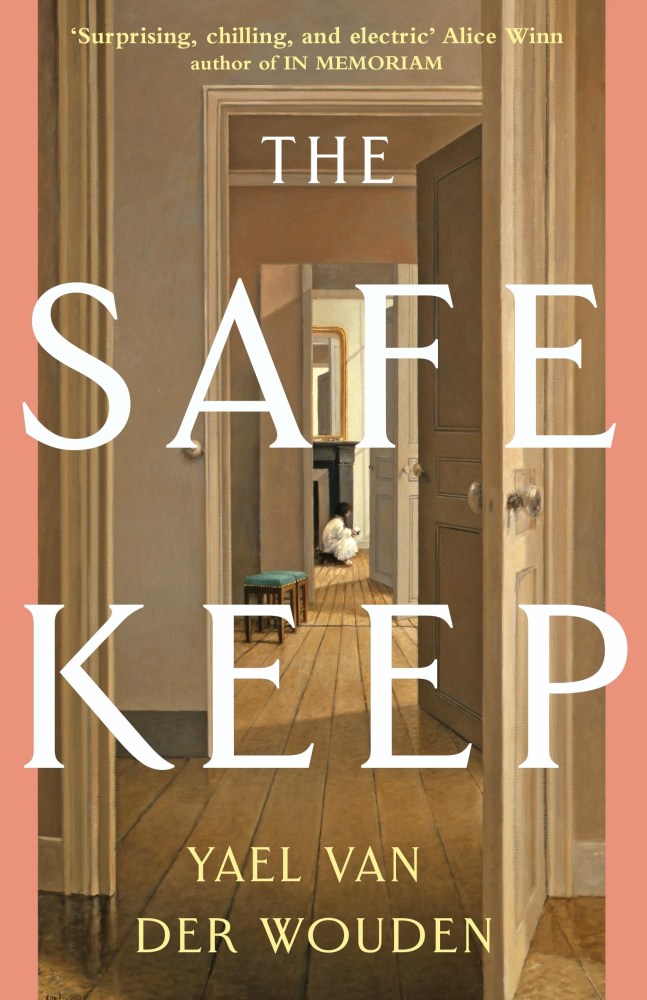

The Safekeep is, to me, a novel set apart by its sensuality in both senses of the word. It’s a sensual novel in the way that it’s especially attuned to the senses, to its narrator, Isabel’s, sensory experience. Isabel is a lonely character. She lives by herself in a country house in a rural part of the Netherlands, her mother dead, her brothers elsewhere. In a way, she lives for that house, to maintain its rooms, to tend to its garden, to keep careful track of its state. The house is an extension of her, and as such her sensory awareness of it is careful and specific. Isabel is attuned to the house, and so we, too, are very much attuned to her acute sensory experience of it: its spaces, its sounds, its atmosphere, its furniture, its crockery.
All of this changes when Isabel’s brother’s brings his girlfriend, Eva, to stay at the country house while he’s away. With Eva’s arrival, the story tilts. Isabel’s keen sensory awareness shifts from an awareness of the house to an awareness of Eva. And it is here that the novel becomes sensual in that second sense of the word: still attuned to sensorial experience, but now in a way that’s coloured by attraction, desire–by Isabel’s attraction to Eva, her desire for Eva. There is a charge between these two characters, and it is evidenced in the writing, in its careful sensory accounting of Isabel’s perceptions. She is so keenly aware of Eva, of her presence, of her gaze, of her looks, of her words. I love books where interactions matter, and this is absolutely one of them. Isabel and Eva’s interactions matter because they resonate with the tension that exists between them, a tension that by turns pushes them apart and brings them together. Isabel resists Eva and yet is inexorably drawn to her; she is hostile to Eva and yet is utterly taken in by her presence.
Lonely but also closed off and set in her ways, Isabel is then forced to contend with this tension, with the way Eva not just disrupts her routines, but unsettles her. She is attuned to the house, to Eva, to Eva in the house, and those things all blend together in a way that Isabel cannot ignore. At once compounding and competing with each other, these awarenesses make Isabel both more and less aware of the house: Eva’s novel presence bringing the house and its routines into sharp relief, and yet also eclipsing its previous comfortable familiarity. It’s a delicious dynamic, and I loved watching Isabel grapple with and grow into these feelings: repressing them, denying them, acknowledging them, articulating them, acting on them. It’s not an easy or comfortable process for her, but this only makes it all the more meaningful when she is finally able to come out of her shell and articulate to herself what (or who) she wants.
All of this is to say, there is a tension between these characters, and the novel is not afraid to dwell on it, to unravel it, and to follow it to its end. And I thought it was very much well done: sexy and intimate and authentic to who the characters are and who they become with each other. But more than just sexual tension, there is also another kind of tension in this story. Something is awry from the start, but it’s not immediately clear what. This, too, the novel follows to its end. You get answers, and the novel delivers them with real impact and emotion.
I honestly really enjoyed this one. It’s an efficient novel, the plot pared down to its most essential–and thus effective–elements: a house, two women, and a question mark underlying it all.

Blog | Goodreads | Twitter | Instagram

